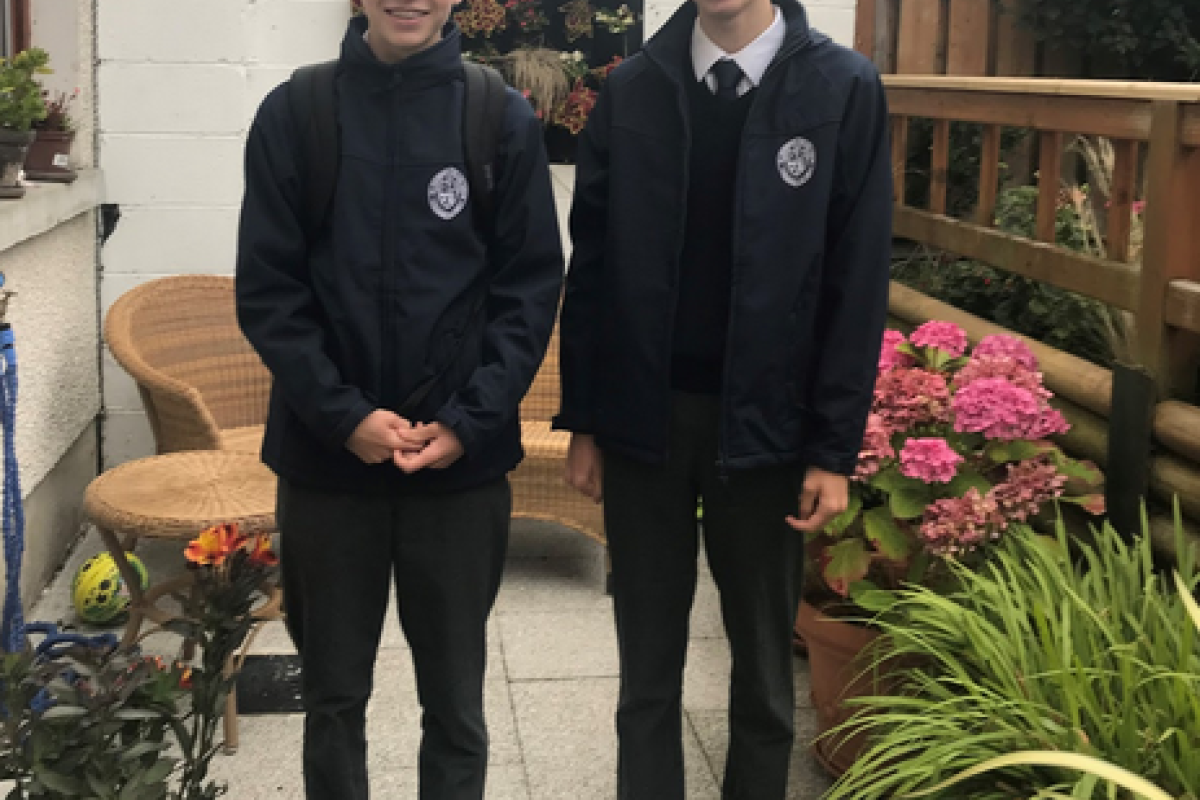Cleo Talbot grew up in a small town in the middle of Ireland called Mullingar. There, the only women she ever met who had science degrees were her teachers—teachers like Ms. O'Donoghue, who was a “brilliant and great” biology teacher, Talbot says. Those teachers would become her role models—inspiring a career first in teaching science, then in hospital diagnosis, and then in the biotech industry as a quality assurance manager at Amgen. Her path also took her full circle from teaching biology and chemistry at St. Andrews College Dublin in the late 1990s to her son now taking biology classes at the same school, including participating in the Amgen Biotech Experience (ABE).
“It took me a long time to work out the path to get to where I am,” says Talbot. “That’s the bit that students often are missing and that I share with my son now—how to navigate a scientific career.” ABE, she says, is helping her son realize that, by exposing him to different careers in biotechnology, something Talbot herself did not have in secondary school.
After Talbot left her teaching position at St. Andrews to pursue work at a multidisciplinary diagnostic testing lab, her replacement was Hilary Rimbi, who now teaches her son Phillip. Talbot says that before Rimbi taught the class about different career paths, her son had never even considered going into biotechnology. “I would have loved to teach the course that Mrs. Rimbi does now,” Talbot says.
Now at Amgen, Talbot manages a team whose job it is to ensure the quality of the pharmaceuticals going to patients—everything from ensuring the potency and purity of the product to making sure both the drug and packaging are sterile. The drugs are manufactured around the clock, so she does shift work, which means sometimes working at off hours. But what she loves most about the job is working with a team. “I love the collaborative atmosphere, working with so many talented, intelligent people,” Talbot says.

She recalls her hospital research lab work, right after she left teaching, as less collaborative. Her 9 years in the lab was an intense time of growth, as Talbot simultaneously got a master’s degree in molecular genetic pathology and earned several professional certifications, all the while starting a family. She remembers bringing her young sons into the laboratory office over some weekends when she was working to complete her dissertation.
After her work at the hospital diagnostic laboratory, Talbot moved to a role as quality manager in the National Virus Reference, where she became interested in applying for a role in Amgen. She has enjoyed each transition: from public service as a teacher and hospital scientist, to working within a university, to private industry at Amgen. And she is now enjoying sharing her love for science with her son.
Through his learning experiences and her early teaching experiences, Talbot has seen a lot of changes in how biology is taught in school. What was once only rote memorization is now more about “adapting their minds to develop skills for coping in a modern work environment.” It’s also, she says, great how students, especially in ABE, get snapshots of the fast-pace biotechnology world. “It cannot fully keep pace with what we’re doing in biopharmaceuticals,” she says, “but because of ABE, Mrs. Rimbi is able to give them glimpses of what’s happening in industry.
After the CRISPR unit in school, her son watched the documentary “Human Nature” with her, and they had a stimulating discussion about genetic mutations and bioethics. They discussed hemochromatosis, a condition marked by excess iron that runs in their family, and she says that he expressed concern about parents one day being able to “design babies.”
These discussions underscored for Talbot how ABE has helped spark her son’s own interest in her career—something he was never interested in before. “It’s been a long but rewarding path,” she says.
